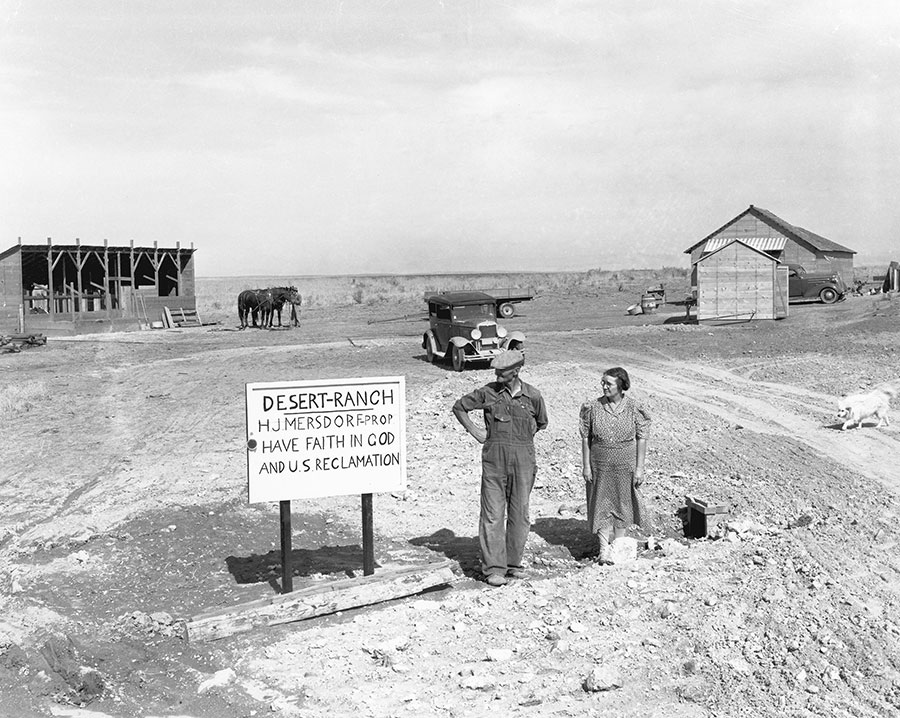- Reclamation
- Columbia-Pacific Northwest Region
- About Us
- Reclamation History
History
Liquid Gold

In the early 1900s, the Western frontier was but a distant memory, although there were still many acres of potential farmland lacking a consistent supply of irrigation water. Westerners often say, "Whiskey is for drinking, but water is for fighting." Although in some places in the West, there might have been enough water, it didn't come at the right time or it wasn't in the right location.
Nationally, there was a call for the federal government to lend its expertise to the problem of irrigation water supply and delivery. The history of the West is truly "written in water." Water has changed the complexion of the inland Pacific Northwest, transforming acres of sagebrush into cropland.
In the early days of this century, when many of the dams built by the Bureau of Reclamation were authorized, there was a belief that water left in streams to run to the ocean was "water wasted." So, projects were developed to store and use the water to grow crops, develop industries, and supply communities. To complicate matters further, the right to use the water - "water rights" were issued by the individual states.
Times have changed, the West is settled and scientific knowledge has increased. Today, we have inherited the decisions and the infrastructure developed by previous generations. Some now call for a removal of the dams. Some call for additional water for threatened or endangered species. And, those with valid water rights and contracts continue to request that they be honored.
It is a difficult time. Americans are faced with challenges and opportunities. The population of the Pacific Northwest continues to grow at an astonishing rate. With that growth, comes a call for more water. The Bureau of Reclamation remains committed to implementing the federal laws that authorized the Projects which enabled the settling of the West and fueled its economic growth. Dedicated staff members seek to operate and maintain more than 70 dams in the Pacific Northwest, ensuring they are safe and operate efficiently. Reclamation staff work closely with irrigation districts and other water users in developing the most efficient irrigation water delivery methods. As an agency, we develop collaborative partnerships with Tribes and other federal, state, and local agencies to manage, develop, and protect water and related resources in an environmentally and economically sound manner in the interest of the American public.

